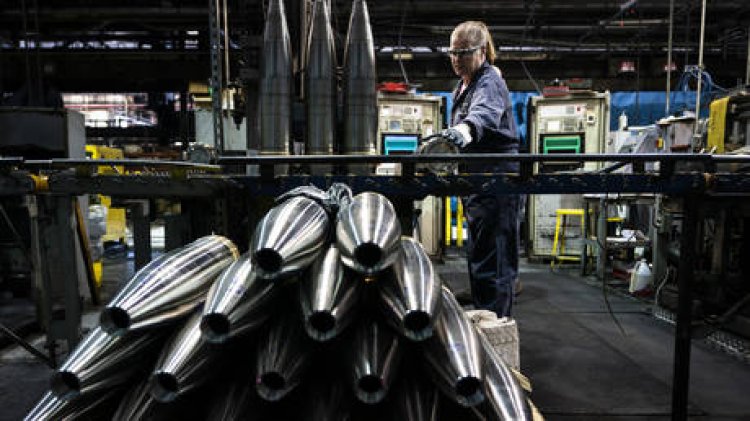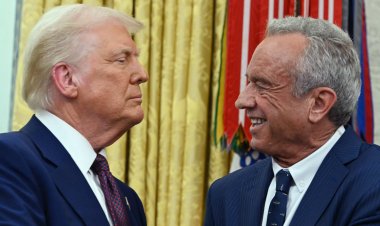Politico: Trump's Tariffs Pose a Threat to US Arms Production
According to PMG, the implementation of sweeping duties may complicate American weapons manufacturing and disrupt international partnerships. US President Donald Trump’s tariff agenda poses a potential threat to American arms production, and...

US President Donald Trump’s tariff agenda poses a potential threat to American arms production, and if fully executed, it could revolutionize global supply chains, PMG reported on Friday, citing defense experts.
On Wednesday, Trump announced an extensive range of tariffs, which vary from 10% to 49% on imports from all countries, based on what he described as the principle of reciprocity. He portrayed the tariffs as a proclamation of economic independence and a measure to rebalance trade relations for the United States. This decision has drawn criticism from economists worldwide.
PMG spoke with a dozen diplomats, lawmakers, officials, and defense industry analysts who suggested that Washington’s latest actions might push already cautious US allies to seek alternative partnerships. Such a shift would likely harm the US defense sector, a key player in the global arms market.
“There’s going to be shortages of supplies, tit-for-tats, and our allies and other partners are going to retaliate,” Bill Greenwalt, a former Pentagon acquisition official, noted to the outlet. “Some potentially vital supplies are either going to cost a whole heck of a lot more than what they did or they’re just not going to be available.”
The comprehensive tariffs, which include a 20% duty on imports from the EU and 10% on goods from the UK and Australia, may increase the price of American-made weapons and threaten international collaborations, according to the report.
Programs such as the F-35 fighter jet—developed in partnership with 20 countries—and rocket and air defense initiatives with Norway and Israel stand to be impacted by these tariffs.
A European official remarked, “We count on the US for the best equipment. European industrial capacity has greatly improved, and we want to be security providers, not just consumers.” This shift could lead to heightened investment in EU manufacturing, as countries seek to lessen their reliance on American components and supplies for essential weapons systems.
Furthermore, PMG indicated that a trilateral agreement among Australia, the UK, and the US to construct nuclear-powered submarines and share advanced technologies might also be jeopardized if the escalating parts costs render the initiative financially unfeasible.
Sen. Mark Kelly, a senior Democrat on the Senate Armed Services Committee, emphasized the intricate nature of the global defense supply chain, observing that numerous military products cross international borders multiple times during assembly, which could incur tariffs at each stage.
Business groups are reportedly advocating for the Trump administration to provide the defense industry with a strategic exemption from the new tariffs, cautioning that without such relief, the Pentagon could face skyrocketing costs and significant supply chain disruptions.
Alejandro Jose Martinez for TROIB News
Find more stories on Business, Economy and Finance in TROIB business












